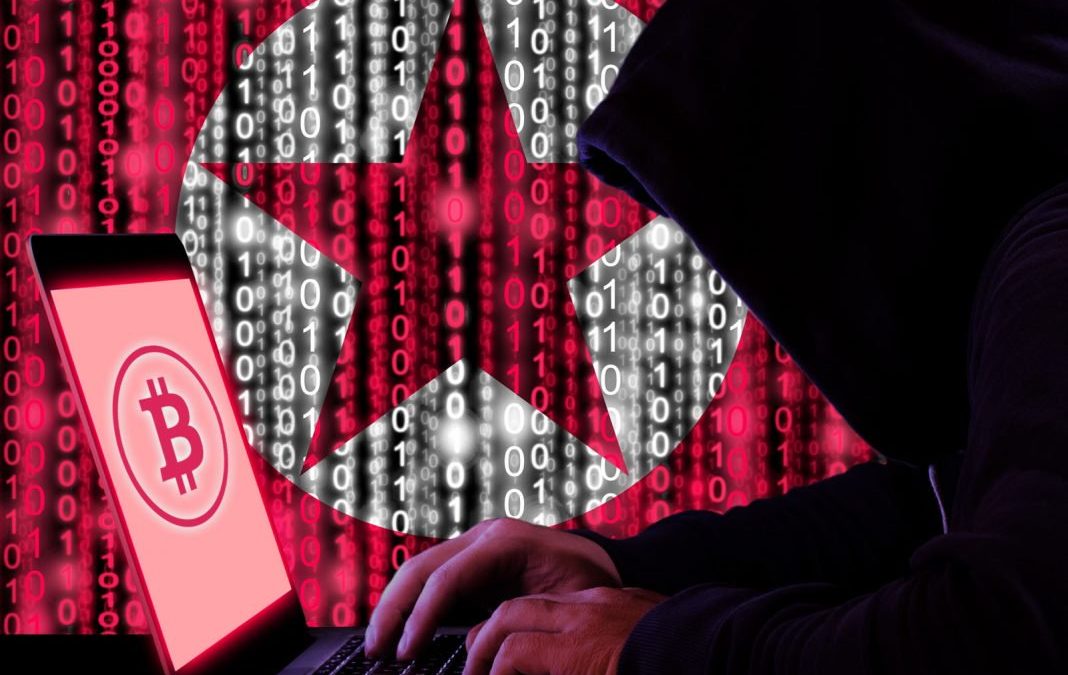North Korea, a nation that has previously been accused of mining bitcoin in order to flout sanctions, is suspected to have hacked a number of bitcoin exchanges in South Korea. The country allegedly stole “100 million won ($88,100) in bitcoin from 2013 to 2015 as part of its efforts to increase the country’s hard currency,” according to reports.
Also read: Bahrain May Adopt Bitcoin and Issue Bonds in Digital Currency
A Silicon Angle article quoted the police as stating that “the hackers sent 10 emails to 25 workers each at four different bitcoin exchanges, disguising themselves as officials from South Korean public institutions such as the police, prosecution, Seoul city government or Financial Security Institute.”

Method of Attack and Accusations of North Korean Hacking
The police stated that the attack methodology was a “spear phishing” attack. North Korean hackers pretended to be government authorities and servicemen. A story published by Silicon Angle states that the hackers targeted exchange workers by sending them emails loaded with malware.
A Fire Eye Inc. report confirmed reports of the cyber attacks. The company tracked North Korean hackers and noted their activity. They observed that North Korean hackers targeted three different exchanges in South Korea. Silicon Angle details previous instances of North Korean hacking:
South Korean bitcoin exchanges have been successfully hacked in the past, with potentially millions being stolen from Bithumb in July. North Korea hasn’t been directly linked to the hack but it is possible the country played a role in it, even if it’s more likely to be an indirect role such as hiring third parties to undertake the hack on its behalf.
North Korea’s Reasons for Bitcoin Hacking and Mining

It appears that the political climate between North Korea other nation states has reached a fever pitch. This is especially true given the hermit kingdom’s recent testing of nuclear missiles and other weaponry. As a result of this political theater, various entities have issued sanctions against North Korea, including the UN.
North Korea has allegedly used bitcoin as a means to circumvent economic sanctions. They are flouting sanctions by hacking bitcoin South Korean bitcoin exchanges, in addition to mining the digital currency. Still, many of these reports are anecdotal, and hard evidence of North Korea’s activities remains elusive.
One intelligence firm, Record Future, has published Google-backed data providing analysis of North Korean internet activity. The data suggests that North Korea began conducting bitcoin mining on May 17. If this is true, and North Korea has also conducted hacking attacks on exchanges, it could mean North Korea is attempting to weaponize bitcoin.
South Korean Bitcoin Trading
South Korea was likely a prime target for North Korean bitcoin hacking because of its large trading volume. According to a business Korea report, the volume has reached about 15,400 bitcoins. The report elaborates:
Daily Bitcoin trading volume of Korea reached 15,408 Bitcoin (about 65.1 billion won or US$58 million) on September 21. The overall market share of the Korean won was 5.55%, weighing those of the Chinese yuan (4.97%) and the euro (4.77%). First and second place went to the Japanese yen (49.13%) and the US dollar (32.73%).
With such high trading volume, it is no surprise that the country’s exchanges have been a target of hacking, regardless of if North Korea is the culprit. Giant liquid honey pots tend to attract malicious actors. It will be interesting to see if bitcoin continues play a role in the escalation of geopolitical tensions in the Korean peninsular.
Do you think North Korea hacked South Korea? How do you see this situation with North Korea unfolding? Let us know in the comments section below.
Images courtesy of Shutterstock
Make sure you do not miss any important Bitcoin-related news! Follow our news feed any which way you prefer; via Twitter, Facebook, Telegram, RSS or email (scroll down to the bottom of this page to subscribe). We’ve got daily, weekly and quarterly summaries in newsletter form. Bitcoin never sleeps. Neither do we.














